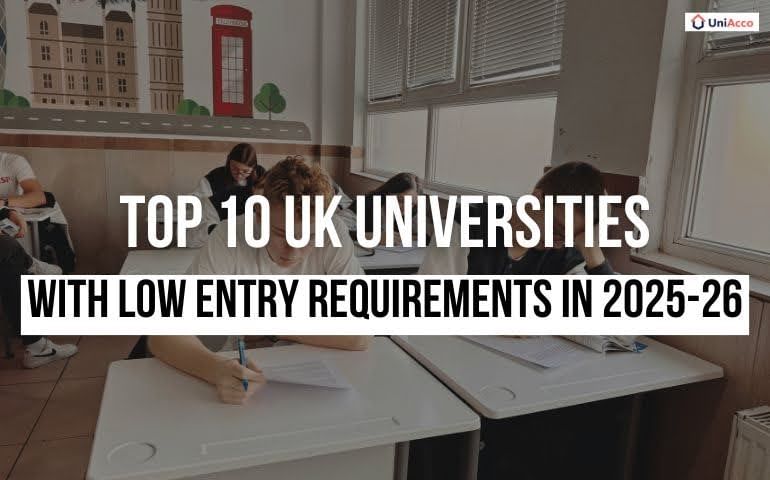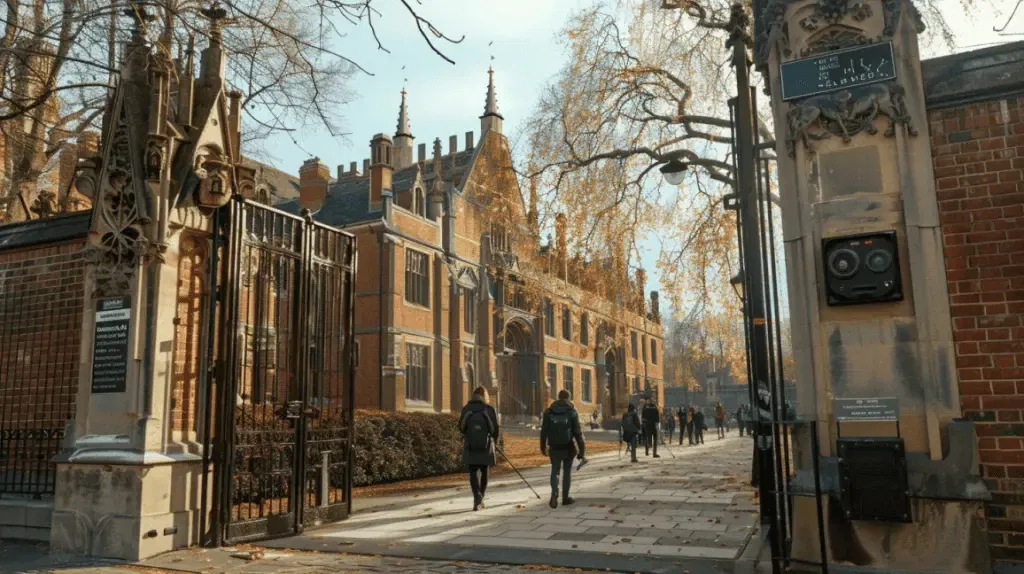UCAS Clearing can feel overwhelming at the last minute. But it’s actually a smart second shot at fulfilling your dream of studying in the UK. Maybe your results didn’t go as planned. Perhaps you changed your mind about the course. Or maybe you missed a deadline. Whatever the reason, UCAS Clearing helps you find a university seat that’s still available. You’re not out of options. You’re just getting started.
What Is UCAS Clearing?
UCAS Clearing is your backup plan when things don’t go to plan. It helps you find available university courses in the UK after the results are out. You can use UCAS Clearing if you’ve applied through UCAS but don’t hold any confirmed offers. It connects you with universities still offering places.
You’re eligible for UCAS Clearing if:
- You apply after 30 June
- You didn’t get any offers
- You didn’t meet your offer conditions
- You declined your place using the ‘decline my place’ button
- You’ve paid the full UCAS application fee (£27.50)
Clearing opens on 5 July and closes on 18 October. Courses appear in Clearing for many reasons. Some students switch courses or drop out. Some universities add extra seats. That means real opportunities for you to step in and claim your place.
Using UCAS Clearing Plus to Discover Course Options
If you enter Clearing, Clearing Plus can help by matching you to courses that fit your profile. It uses the details from your application and compares them to what universities want.
When you’re unplaced or start a new application, you’ll see a button called ‘My matches’ in your UCAS Hub. Clicking it shows up to 50 course suggestions tailored for you. You can then express interest in those universities. If they still have vacancies and you meet entry requirements, they might contact you.
Clearing Plus saves you time and effort by doing some of the course searching for you. You can still use the regular Clearing search tool to find other options if you prefer.
This service is open to students who apply after 30 June or don’t hold any offers. It’s an extra way to find your next step without the usual stress.
UCAS Clearing for International Students
You can use UCAS Clearing just like a UK student. The process is the same. But there are a few extra steps you’ll need to manage.
You’re eligible if:
- You apply after 30 June
- You don’t have any confirmed UK offers
- You didn’t meet the entry conditions
- You got the grades but want to change course
You’ll use the UCAS Hub to apply through Clearing. But your documents and timelines might differ slightly.
You’ll need a student visa once you accept a university offer. Apply as soon as you receive your CAS number. Visa approvals can take up to three weeks. You may also need to submit an English test score if it’s not already in your application.
Also Read: All You Need To Know About UCAS Application 2025-26
Key UCAS Clearing Dates You Must Remember
Clearing opens on 5 July 2025 and closes on 20 October 2025. Mark these dates as they matter. If you’re applying on results day, you can add your Clearing choice on UCAS Hub at these times:
- 5 August 2025, 10:00 (UK time) – SQA results day
- 14 August 2025, 13:00 (UK time) – A-level results day
Apply as early as you can. Some courses go fast. Check the UCAS Hub often for fresh course updates.
Steps to Apply for University via UCAS Clearing
- Get Advice Early
Talk to someone who knows the process; it can be your school adviser, college careers officer, or a trusted mentor. They can suggest alternative courses or universities you might not have considered. If you’re applying alone, UCAS.com has all the official details you need. Don’t wait until Clearing opens to seek advice. Planning ahead makes everything smoother.
- Search for Available Courses
Use the UCAS search tool to find courses with vacancies. It’s the only official list, so it’s reliable and updated regularly. If your first choice isn’t available, think about related subjects or joint honours courses. Keep checking the list often. Universities can release new spaces at any time during Clearing. Read the course details carefully and check the entry requirements and course content before making a decision.
- Contact Universities or Colleges
Before adding a Clearing choice, call the university or college. Provide your Clearing number and Personal ID from your UCAS application. Ask if they’re willing to offer you a place. Sometimes, they’ll reconsider your earlier application or suggest other courses. Ask about accommodation options and campus facilities. If possible, visit the campus or take a virtual tour to get a feel for the place.
- Add Your Clearing Choice
Only add a course once a university confirms they want you. Go to your UCAS Hub and click ‘Add Clearing choice’. Enter the course and university details exactly as they told you. This action confirms you accept the offer. You can only add one choice at a time. If that choice isn’t confirmed, you can try another. Keep track of all communications and deadlines.
- Wait for Confirmation
Once your place is confirmed, focus on the next steps. Look for student accommodation early. Check all university deadlines for enrolment and registration. Arrange your finances, visa, and travel plans if you’re an international student. Keep in touch with your new university; they’ll guide you through joining and starting your studies smoothly.
If your Clearing choice is declined or you don’t get the offers you want, don’t give up. Go back to researching courses and universities. Contact more institutions and add new Clearing choices as needed. Clearing runs until 20 October, but popular courses fill fast. Act quickly and keep exploring your options.
Also Read: How to Apply to Universities in the UK through UCAS
What Is UCAS Self-Release and When Should You Use It?
If you already hold a university place, even as a backup, you can choose to self-release. This means you give up your current spot to enter UCAS Clearing. It lets you apply for a different course or university that suits you better. Self-release is your option if you want to change direction after accepting an offer.
How to Decline Your Place with UCAS Self-Release?
- Log in to your UCAS Hub account.
- Click the ‘Decline my place’ button on your application page.
- Read the information carefully and answer the confirmation questions.
- Submit your decision to release your place.
- You will receive an email confirming that you are now in Clearing.
If you change your mind, contact your university immediately. Reclaiming your place is not guaranteed, as it might be offered to another student.
Remember, declining your place cancels any accommodation or scholarships linked to that offer. If you want to switch courses at the same university, call them first before releasing your place.
If you want to accept your insurance choice, check with that university before self-releasing from your firm choice. This keeps your options safe.
Top Tips for Contacting Universities During UCAS Clearing
- Get Prepared
Before you pick up the phone, have everything ready. Keep your Personal ID and Clearing number close. Write down your grades and key achievements. Jot down the university’s name, course code, and contact number. A quiet spot with a strong signal helps you focus and avoid mix-ups during calls.
- Be Positive and Polite
Show enthusiasm for the course and the university. Speak clearly about why you want a place there. Even if you’re nervous, stay calm and polite. Making a good impression can boost your chances.
- Do Your Homework
Research the course and university before calling. Knowing details shows you’re serious. Check websites, rankings, and student reviews. Mentioning specifics during the call sets you apart from others.
- Speak for Yourself
It’s tempting to get someone else to call for you. But universities want to hear from you directly. It may feel daunting, but staff are there to help. Your voice counts in this process.
- Stay Patient and Calm
You might need to call several universities. Don’t rush or panic. There are many options available beyond traditional degrees, like apprenticeships. Keep an open mind and stay composed.
- Revisit Past Choices
Don’t rule out universities you previously declined. If you liked the campus or course before, it’s worth calling again. Universities may have new places, and your situation has changed.
- Take Your Time
Avoid rushed decisions. Make sure you genuinely want to study at the university before accepting an offer. If your first choice didn’t work out, consider waiting to reapply next year or exploring similar courses.
- Talk It Out
Discuss your options with friends, family, or advisers. Sharing your thoughts can clear your head. Others can help you weigh the pros and cons and support your decisions.
- Explore Other Contact Methods
Phone calls aren’t the only way to reach universities. Many offer live chat or social media support. If you have hearing difficulties, ask about alternative ways to communicate.
- Look After Yourself
Results day and Clearing calls can be stressful. Remember to take breaks, drink water, and get fresh air. Taking care of your well-being helps you stay sharp and focused.
Wrapping Up!
UCAS Clearing isn’t a fallback. It’s a forward move. If your plans shifted or things didn’t go as expected, this process gives you room to regroup and reapply with purpose. You still have time, choices, and control. From Clearing Plus to self-release and from course searches to confident phone calls, every step brings you closer to a fresh opportunity.
So, don’t rush. Think clearly. Ask questions. And take action when it feels right. Your path to a UK university might look different now, but it’s still wide open.
Got your course sorted through UCAS Clearing? Don’t leave your housing to chance. UniAcco helps students like you find safe, affordable student accommodation in the UK near your university.
FAQs
- Can I gain admission to a university with lower grades through UCAS Clearing?
Yes, some universities may accept lower grades during the university clearing process, especially if they still have vacant seats. However, this depends on the course, subject demand, and specific entry requirements. Not all universities will reduce their criteria, so check with each institution directly before applying.
- What is the cost of applying through UCAS Clearing?
If you applied for only one course earlier and paid the reduced fee of £22.50, you’ll need to pay £4.50 more to access UCAS Clearing. This brings your total to the full multiple-choice application fee.
- Where can I find my UCAS Clearing number?
You’ll find your UCAS Clearing number in your application dashboard under the ‘Application Status’ section. It appears only if you’re eligible for the UCAS clearing process.
- How can I find available university places during Clearing?
The UCAS search tool lists all Clearing vacancies from early July. Universities update this list often, so keep checking for new openings until mid-September.
- How do I respond to a university offer during Clearing?
You don’t need to reply manually to a Clearing offer. Once you’ve added a university as your Clearing choice in UCAS Hub, it’s up to them to confirm your place. If they accept you, it will automatically reflect in your application status.















0 Comments